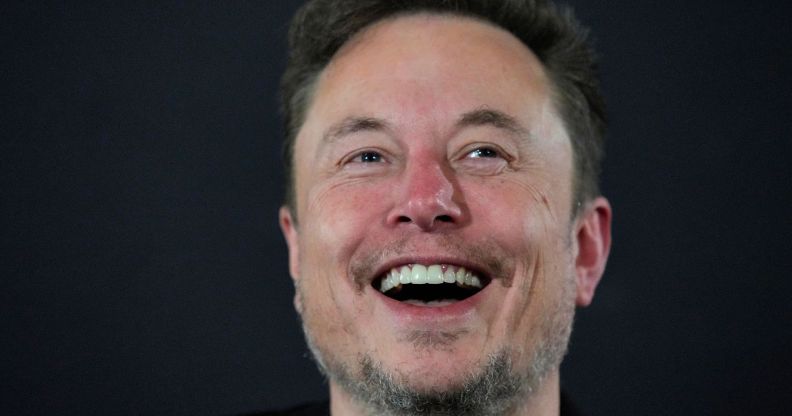
Elon Musk has said he doesn’t want advertisers to spend money on X. (Getty)
Elon Musk has hit out at advertisers who are hesitant to spend money on X/Twitter since his takeover, going as far as to tell them to go f**k themselves.
The self-proclaimed free-speech advocate was being interviewed as part of the New York Times Dealbook summit when he lashed out at advertisers, particularly Disney chief executive Bob Iger.
During the interview, Musk was asked about advertisers pulling out of spending on his platform, to which he responded: “Don’t advertise”.
He went on to talk about advertising being used to “blackmail” him with money.
He then said “go f**k yourself,” before repeating the statement slowly to make it clear for any advertisers who didn’t understand the first time.
Since Elon Musk bought Twitter in October 2022 – for approximately $44 billion (£34.79 billion), the site has reinstated hard-line right-wing figures, and removed protections for trans people. He labelled the word “cis” a heterosexual slur.
These and similar actions have led to many companies pulling their ads from X over concerns about what content their brand name could appear alongside. A recent estimate suggests this hesitancy could lose the company $75million (£59 million) this year.
‘Descent into white nationalist and antisemitic conspiracy theories’
Musk – believed to be the richest man in the world – is currently suing Media Matters for America after the watchdog claimed adverts for major corporations appeared next to pro-Nazi material on the platform.
Media Matters also claimed that Musk was continuing “his descent into white nationalist and antisemitic conspiracy theories.”
The lawsuit describes X as “the most-prominent online platform dedicated to hosting free speech” and claims Media Matters’ coverage was “a blatant smear campaign” against the platform and Musk himself.
In response to the concerns raised, huge firms such as Apple, Disney and Comcast have paused advertising on X.
On 15 November, Musk replied to a post sharing an antisemitic conspiracy theory, calling it “actual truth”, prompting the White House to condemn his action as “unacceptable”.
Musk has previously denied that the post was antisemitic, but, as reported by The New York Times, apologised for it yesterday (29 November), saying that, in retrospect, he should not have replied to the post and “should have written in greater length what I meant”.
